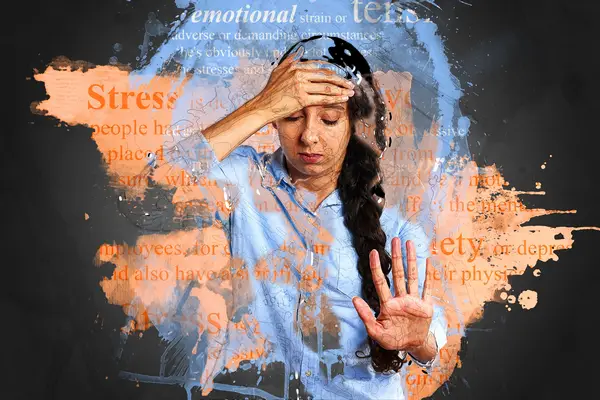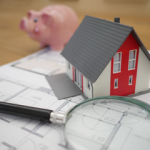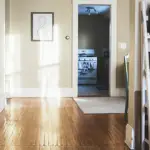
Buying a house is probably one of the biggest purchases you’ll ever make, which could be why you are having second thoughts right now.
So is it normal to have second thoughts about buying a house? It’s absolutely normal to have second thoughts about buying a house. This can even be the case if your new home ticks every box on your checklist. But so long as you’ve done your research and the necessary due diligence, plus you can afford the new mortgage there’s no reason to change your mind and not buy.
It’s important for you to understand as you read this article that it’s human nature to focus on the uncertainties when making huge financial commitments. This is normal, but it’s how to overcome these uncertainties.
What can lead to having second thoughts about buying a house?
There are many things that can lead to having second thoughts when you’re buying a house. These include the following:
- The results of a survey or inspection may show up a number of defects. Often times a survey or inspection can highlight defects. If it does you have three choices. These include to walk away, to renegotiate the purchase price or ask the sellers to carry out the necessary works. The only reason to have second thoughts in this case is if you’re not prepared to take on any remedial works. If you’re not and the seller is not prepared to do the works, walk away.
- The search results may have uncovered something you didn’t know beforehand. As part of the buying process it’s recommended to carry out searches. The reason being is they can and often do uncover aspects about the location of your new house you may not like. If it’s the search results that are causing you to have second thoughts, talk these through with your solicitor.
- Something may be uncovered on the title searches. Another check that’s done by your solicitor is a title check. This may uncover things like covenants you were not aware of beforehand. You need to be comfortable with what’s uncovered on the title check. Discuss the ramifications of this with your solicitor. If your solicitor is able to allay your fears there’s no reason to continue with your second thoughts.
- The mortgage valuation may be lower than what you are paying for the house. If the survey and valuation by the lender has resulted in a lower valuation than what you’ve agreed to pay you should consider renegotiating the purchase price. There’s no need to have second thoughts if you are able to agree a new purchase price based on the valuation.
What should you do if you are having second thoughts about buying a house?
If you are having second thoughts about buying a house you should begin by asking yourself important questions about what you are looking for in terms of a new home.
You should look at the following aspects for your new house:
- Is the property the right size for you and your family.
- Are the rooms big enough.
- Is the property detached or semi-detached?
- Does it have enough bedrooms?
- Does the property have a garage?
- Is the property in the right location in respect of your work and for schools if you have children or you plan to have them.
- Is the property in a good location aesthetically or is it on a busy main road?
- If you are borrowing more on your mortgage can you afford the new repayments.
- Does the house need to be refurbished, and if so are you able to afford what it will cost.
- Does the house have a big enough garden?
- Is the property in a flood zone?
- Is the house facing the right way? E.g. is it south facing if this is important to you.
If you work your way through these questions you will begin to remove any second thoughts. Or if the answers to these questions highlight negatives against your new ideal home, this may help you to confirm why you are having second thoughts.
This may lead you to pull out from the purchase. But it’s better to do it before you exchange contracts rather than afterwards. You might like to read this article about if a house sale falls through who gets the deposit just in case.
What are the downsides of pulling out before exchange of contracts?
If your conclusion is to pull out from the purchase after running through the above questions, what are the consequences of this.
- The costs associate with an abortive sale: The main downside of pulling out before exchange of contracts, especially if this is only weeks before you exchange, is you will be out of pocket on costs. This will include search fees, legal costs and valuation or survey costs.
- You need to begin your house search all over again: In addition to the costs associated with pulling out is the fact that you now have to find another house to buy and move to. But also, you shouldn’t forget that you have also just let your sellers down too. This will have cost them money in terms of legal fees. But also they are back to square one and have to begin the sales process again to sell their house. If you really want to do the right thing, you should offer compensation to the sellers for their out of pocket legal fees.
- You may lose your sale if you pull out from your purchase: If you are also selling at the same time as buying you’ll need to put your house sale on hold. As a result you may lose your buyers, unless they are happy to wait. But if they are in a chain, this decision may be out of their hands.
This article is also worth a quick read, which is about what happens when you change your mind about selling your house.
Consider whether your second thoughts are about the house or about the commitment to a new house and borrowing
It’s important to recognise why you are having second thoughts about buying a new house. Ask yourself these two important questions:
- Are your doubts about the particular house you are buying?
- Or is it possible you are picking faults with the house simply because you are getting cold feet simply about buying property?
Whilst buying a house is a huge financial and emotional commitment, you need to work out whether it is the house you have doubts about or whether it’s about the whole house buying process which is freaking you out.
The question is: Are you panicking about the emotional and financial change or do you have genuine concerns about the property?
To help you to understand what’s going on, you should go back to the above questions. If you are able to answer the above questions in the positive, this may point to a fear of committing to the purchase.
But on the other hand if you are not able to answer these questions in the positive, you may need to think about pulling out of the purchase. If this is your decision, don’t procrastinate over your decision for too long, as you are affecting other people. You need to let the sellers know sooner rather than later so they can get their house back on the market.
Something else that may help with your decision process would be to revisit the house. However, if you ask to do this when you are close to exchange you may spook the sellers.
With this in mind make sure to give a good and positive reason for the visit. For example, good reasons include measuring up for furniture or for carpets or in preparation for making changes to the property. Before you do this, have a quick read of this article on should I view property again before exchange.
At the end of the day you may need to begin to trust your gut feeling. However, gut feelings can sometimes be masked by feelings of anxiety. See below about how to overcome anxiety if this is the case.
Additional ways to help with buyer anxiety and buyers remorse
The anxiety over buying a house should never be underestimated. Also, buyers remorse is something that many buyers suffer from.
But having buyer’s remorse is too late once contracts are exchanged or if you’ve already moved in. By this time your only option would be to sell or to accept the flaws of your new house.
Ways in which to help with house-buyers anxiety and also to avoid buyer’s remorse:
1. Revisit why you liked the property at the outset
Step back and think about what it was about the house that led you to offer in the first place. This is where a revisit to the property would help.
2. Create a list of needs and wants for your new house
Before you do this, understand that it’s not always possible to buy the perfect house. There are often compromises to make. Also, when you create your list, split these between deal-breakers and those that are a ‘nice to have‘ as compared to a ‘must have‘.
Make sure to create a joint list if you are buying with a spouse or partner. Agree on those things you can’t live without. But ideally this is something you should do before viewing properties or before making an offer. So hopefully if you have already done this, so revisit your list.
By revisiting your list, you should be able to confirm this is the right house for you.
3. Stop looking at other properties once you’ve made an offer
Continuing to look at other properties will only fuel your second thoughts and lead you to ask more questions.
Make sure to stop any email subscriptions and remove any property finder apps from your phone. Stop searching for properties on the likes of Rightmove etc.
4. Think about how long you were looking for a house before making your offer
It’s quite easy to forget how long you might have been property searching before you found this house. If it was more than six months and this is the property you made an offer on, take this into consideration.
5. Revisit the houses you dismissed
Review your reasoning for dismissing other properties over the house you made an offer on. Make sure you didn’t make an offer on this house due to frustration. Also, do you think you looked at enough properties before you made an offer.
There’s no perfect number of houses you should view before making an offer. But if this house was the first you looked at, this might be your reason for having second thoughts.
In this case I may suggest you look at other properties in order to confirm that this is the right house. But if you go through all these questions, in addition to the ones above, and if this house still comes out on top, there’s no reason for you not to buy.
6. Does the purchase involve increased borrowing?
If tour new house requires additional borrowing, have you made sure you can afford the new mortgage payments. In addition to considering the increased borrowing and therefore increased mortgage payments, consider the other costs associated with buying a house.
You should consider the fact that a bigger house will normally come with bigger bills. Recheck you can afford the bigger outgoings.
7. Compare the new house to your existing home
Compare what you are getting with your new house vs your existing home.
Revisit why you are moving, for example is your existing house too small. If it is you may need to move if you have a growing family.
8. Choose a proactive solicitor
The legal process doesn’t help with anxiety sometimes. The delays between an offer and exchange can be stressful and creates uncertainty. It is during this period where doubts can creep in.
However, there should usually be relief once contracts are exchange, which is when you can start to make plans. Choose your solicitor wisely. But this is another reason why I recommend to sell first and rent before buying again later. (see below for a link to an article on this).
9. Be careful not to be swayed by comments by other people
There’s nothing wrong in asking others for their advice and opinion on your house purchase. But you may not always get the right advice for you. It’s not always easy to sift out the good vs the bad advice. Or to work out if the opinions or advice you’re getting is biased due to jealousy.
Where possible seek independent advice about your purchase. For example, you could post your questions either in the comments below. Or better still open up the discussion on my property forum.
First time buyers are probably more vulnerable to this problem. If you are a first time buyer you are more likely to have questions. If you are a first time buyer and you have questions, use the comments below or our forum. Or alternatively speak with the estate agent, your solicitor or your mortgage broker.
10. Do a reality check
In reality the perfect property doesn’t exist. There will usually always be some form of compromise you’ll have to accept. This might be on the location of the house vs the price you can afford. Or it might be a compromise over the size of the house vs its location.
Step back and reflect on what’s important to you about the house you are buying. Is the house you are having second thoughts about as perfect as you’re likely to get. Often times these second thoughts and doubts turn into complete happiness once you buy and move in.
11. Consider the schools in the catchment near the house
If you have children or plan to have them in the future consider the schools. If your new house is in a different catchment area to where you live now check that the new schools are as good as the ones your children currently attend.
12. How soon do you need to move?
Your need to move may influence your decision about your second thoughts. Which is not to say you should buy the house at any cost. But if you have to move because of a job relocation for example, you may not have time to procrastinate.
However, you may be better to rent for a while first. Before you make this decision, please have a read of this article about if you’re thinking of selling your house and renting instead. The article includes a list of pros and cons of renting instead of buying.
What should you do if you have severe anxiety about buying a house?
If you have severe anxiety about buying a house you should:
- Never overstretch yourself with borrowing and make sure you can afford the mortgage.
- Don’t buy a house that’s too big.
- Don’t buy and sell at the same time and consider selling to rent before you buy again.
- Consider hypnosis or other help with anxiety like this top selling solution to end anxiety and panic attacks.
The amount of stress caused for some when buying and selling houses can never be underestimated. For some buyers the anxiety they experience can be much more than it is for others.
If you suffer from severe anxiety when buying houses think about option four. This is especially true if this isn’t the first time you’ve had second thoughts at this stage of the buying process. Perhaps you’ve even pulled out of the purchase because of it.
Are you ‘addicted to offering’ on houses only to pull out afterwards? If you have already pulled out from a purchase for similar reasons you may have an anxiety problem.
In conclusion
At the end of the day you need to do what’s best for you. But always remember how your actions will affect other people. This is especially true if you are close to exchange, which means there will be cost implications for you and the seller.
It’s better to pull out before exchange or completion, as this can lead to buyers remorse otherwise.
Think about selling your house and renting before buying again. To find out more on this and to read about the 15 advantages vs the 10 disadvantages, please take a read of this article here: Are you better selling your house and renting before buying again.
One final thought is to think carefully in the future about how you go about making offers on property. Always view a property at least twice before making an offer. Also remember the longer the gap between viewing the property and making an offer the more it sharpens the mind.
I hope you’ve got something from reading this article about is it normal to have second thoughts about buying a house
If you’ve have got something from reading this article on is it normal to have second thoughts about buying a house one please share it on your favourite social media site.
Also, if you have any questions, please feel free to comment below too. Alternatively, if you need more help, please feel free to contact us on our contact us page here. Or join the discussion and ask your question in the property forum.




